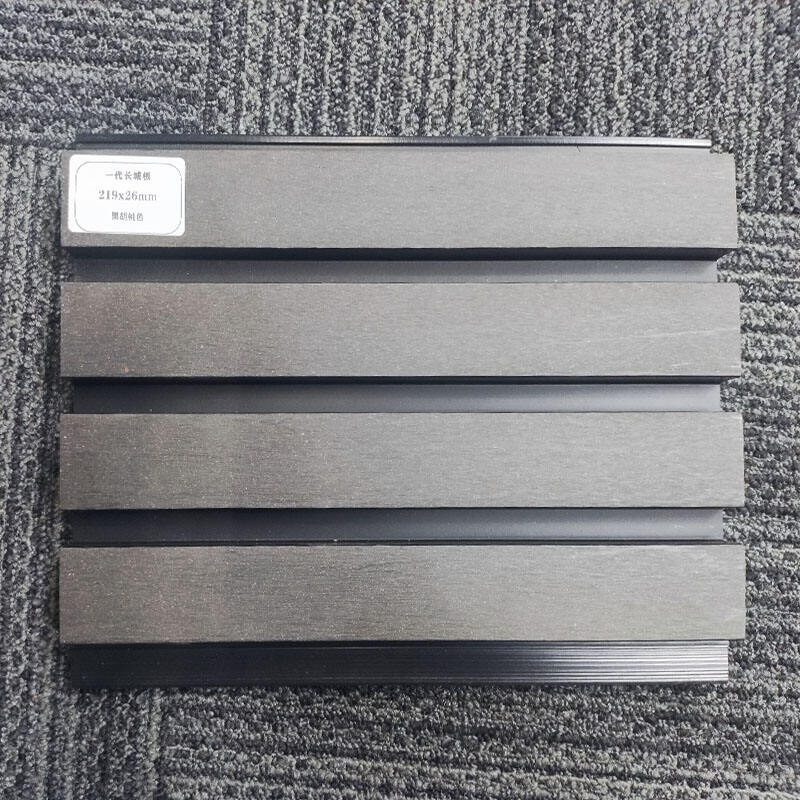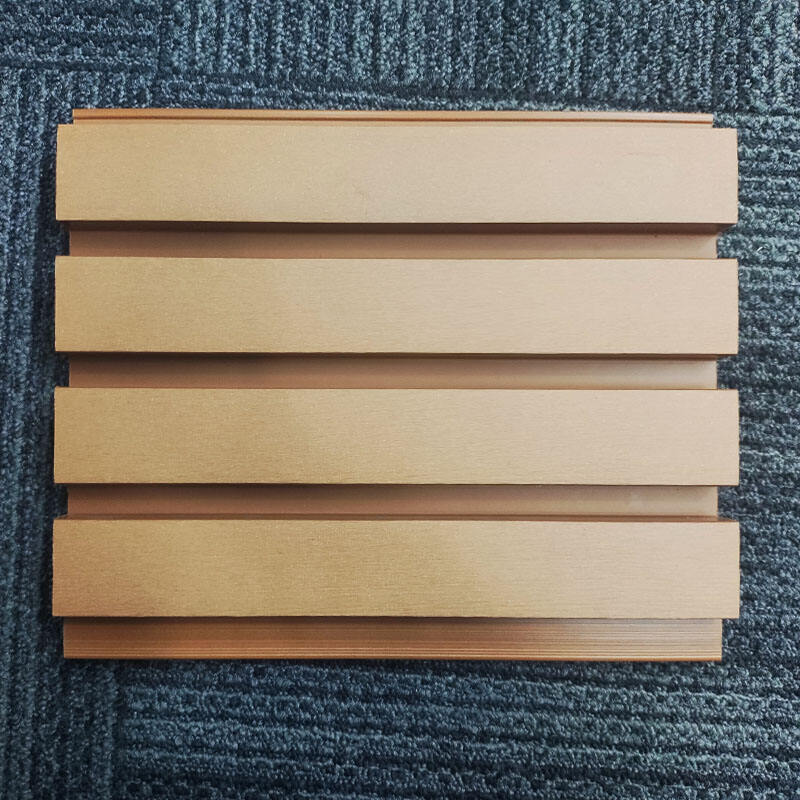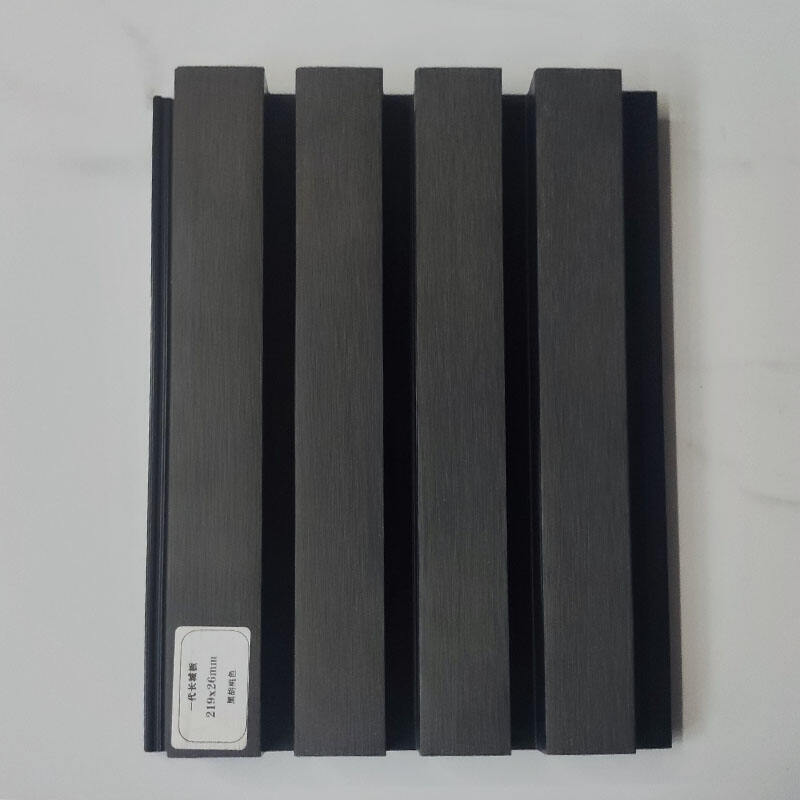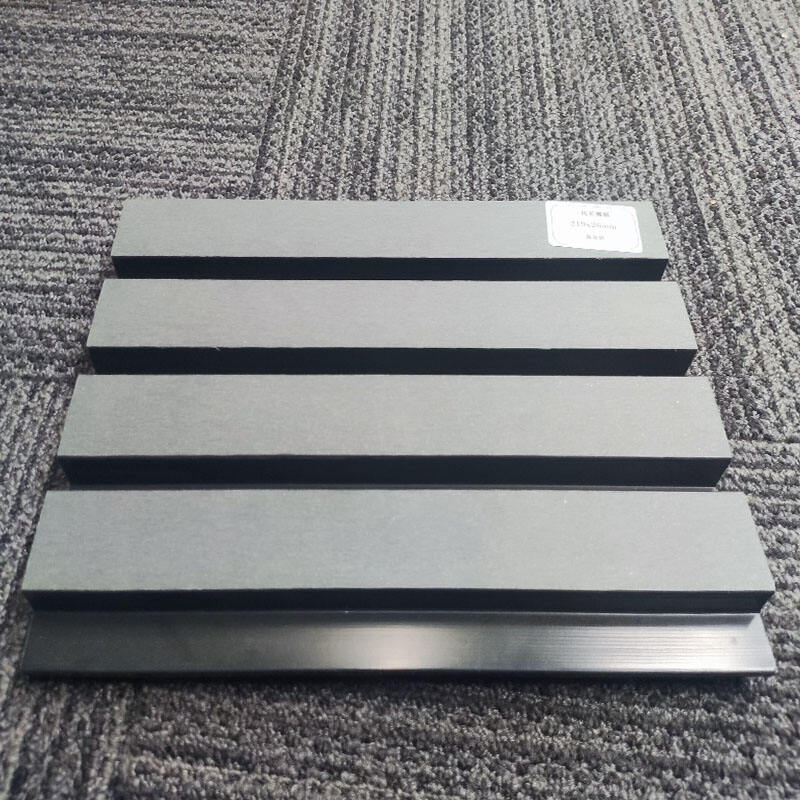Material Durability and Performance
Weather Resistance in Extreme Conditions
When it comes to standing up to tough conditions outside, WPC panels really shine. They're built to handle whatever Mother Nature throws at them rain, snow, even those harsh UV rays from the sun. The way these panels are made keeps them looking good and performing well year after year without warping or breaking down. Most manufacturers back this up with solid test results showing how much better WPC holds up against weather compared to regular materials. Companies actually mix special additives into the WPC formula during production, which gives it extra protection against fading colors and surface damage. All this engineering combined with real world performance makes WPC panels great for any project where lasting outdoor durability matters most.
Resistance to Pests and Rot
WPC panels stand out because they just don't attract pests or suffer from rot like regular wood does. Natural wood has always been a magnet for those pesky termites and other wood destroyers, but WPCs are built to resist these problems right from the start. Their smooth surface doesn't hold onto moisture, so there's little chance of rot setting in or mold growing on them. We've seen plenty of installations in places where bugs love to hang out, and after years go by, these WPC structures still look great without needing constant repairs. The bottom line? Clients get something that lasts longer and saves money on fixes down the road, especially when dealing with buildings located near wetlands or other damp environments where wood would typically fall apart within months.


Long-Term Structural Integrity
One major plus of WPC panels is how well they hold up over time without losing their shape or strength. These panels are built tough with good tensile strength so they won't split apart or develop cracks even when subjected to heavy loads. They keep looking good while still working properly for years on end. Studies show that with regular care and attention, WPC panels can last for 20+ years without serious issues, which makes them worth the initial cost in the long run. Most companies selling these panels back up their claims with solid warranties lasting anywhere from 15 to 25 years. The fact that manufacturers offer such lengthy guarantees speaks volumes about their belief in product quality. Homeowners and builders alike get real value out of this durability factor, especially considering replacement costs for other materials down the road.
Design Versatility and Aesthetic Appeal
Range of Colors and Textures
WPC panels come in tons of colors and finishes that match pretty much any style someone might want, going all the way from classic looks to totally modern designs. Manufacturers have gotten really good at making these panels look just like real wood grain or creating those sleek modern textures people love now. The variety makes spaces look better visually, sure, but it also opens up all sorts of possibilities when designing both inside and outside areas. Garden paths, deck surfaces, even bathroom walls can get that same high quality finish without worrying about weather damage or maintenance headaches.
Customization for Modern Architecture
WPC panels stand out because they work so well in contemporary building projects. What makes these panels special is how straightforward it is to tailor them according to what's needed on site. Architects love this because they can get exactly what fits their vision whether it's unusual shapes, particular sizes, or combining different materials into one panel design. Many builders have noticed that WPCs handle various conditions better than traditional alternatives while still looking great in any setting from coastal areas to urban landscapes. The real advantage comes when specifications change mid-project since adjustments are much easier compared to conventional materials.
Mimicking Traditional Wood Finishes
WPC panels do a great job of looking just like real wood without all the hassle of regular maintenance, making them a good green option for many applications. These panels copy the natural wood grain and texture pretty well too, keeping that timeless wooden look people love so much, but they're actually made from composite materials that last longer. Studies show most folks prefer going this route when building or renovating spaces where wood was traditionally used before. Many homeowners find these panels work especially well for outdoor areas like decks and patios where regular wood would need constant painting or sealing.
In conclusion, the design versatility and aesthetic appeal of WPC panels are unparalleled, allowing for creative freedom while ensuring long-term durability. Whether you're aiming for an ultra-modern look or traditional charm, WPC panels offer the solutions needed for both residential and commercial projects.
Environmental and Economic Considerations
Sustainable Manufacturing Processes
Wood-plastic composite (WPC) panels represent a major step forward in green manufacturing since they're made mostly from recycled plastic and wood fibers. Their environmental footprint pales in comparison to conventional building materials like solid wood or PVC products. A growing number of companies have started switching to greener production techniques that cut down on both waste generation and overall energy usage during manufacturing. Looking at full life cycle assessments tells us these panels generally leave behind a much smaller carbon trail than regular lumber does. We're seeing this trend accelerate as architects and builders increasingly prioritize sustainability in their projects. With climate concerns becoming more urgent every day, WPC panels stand out as one of those innovations that just keep getting better with time.
Cost Comparison Over Product Lifespan
WPC panels do cost more upfront compared to regular materials, but looking at what they save over time really changes the equation. The truth is these composite panels just don't need much maintenance at all, which means property owners end up spending way less money fixing things down the road. When we look at numbers over about twenty years, most studies show big reductions in repair bills and replacement costs. That's why so many folks in the business are turning to WPC these days. Contractors love how durable they are against weather damage too. Architects and builders have started specifying them more often because nobody wants to deal with constant upkeep when there's a better alternative available that stands the test of time without breaking the bank.
Low Maintenance Requirements
One big plus of WPC panels is how little they need in terms of maintenance compared to regular wood that tends to rot, splinter, and demands constant sealing and painting jobs. Property managers love this because it saves them so much time and money on upkeep something that matters a lot in fast paced commercial settings where nobody has extra hours to spare. Real world experience shows buildings with WPC installations go years without needing touch ups, which keeps tenants happy and makes sense from a business standpoint too. With more people looking for materials that don't require constant attention these days, WPCs are becoming increasingly popular among those wanting long lasting surfaces without the headaches. When shopping around for similar products, folks might come across terms like decorative wall panels, acoustic wall panels, or soundproof panels all falling under the same category of easy care alternatives to traditional building materials.

Application-Specific Advantages
Indoor vs. Outdoor Use Cases
WPC panels come in really handy because they work well inside and outside buildings alike. People install them as decorative walls inside homes and offices, but they also show up quite a bit on decks and patios where weather takes its toll. We've seen way more folks choosing these panels for outdoor projects lately since they hold up against rain, sun damage, and temperature changes better than many alternatives. Interior designers love working with WPC materials too. They know clients want something that looks good without breaking the bank on maintenance costs. The panels stick to walls pretty easily compared to traditional options, which saves time during installations. From family rooms to hotel lobbies, WPC continues to gain popularity across different types of spaces needing functional yet stylish wall surfaces.
Acoustic and Thermal Insulation Properties
Acoustic wall panels constructed from WPC material offer excellent soundproofing capabilities, creating better environments for homes and businesses where controlling noise is important. These WPC panels also have good thermal insulation qualities that help keep indoor spaces at comfortable temperatures throughout the year. The energy savings from this dual benefit can be quite substantial while at the same time supporting greener building practices. Studies have shown that buildings incorporating WPC panels tend to perform better in terms of overall energy consumption compared to traditional materials. For anyone looking to reduce unwanted noise and maintain stable indoor climates, these environmentally friendly panels represent a smart choice for modern construction projects.
Suitability for High-Traffic Areas
WPC panels work really well in places where lots of people walk around all day because they're built tough. Schools, office buildings, and apartment complexes often install these panels since regular wood gets beat up so fast there. Property managers report spending way less money fixing walls over time when they switch to WPC instead of traditional materials. Builders love them too, particularly for hallways and common areas that see constant foot traffic throughout the day. The panels just keep going without showing signs of wear even after years of daily use, which saves cash on repairs while keeping spaces looking good longer term.

